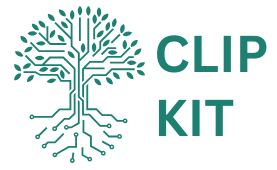Table of Contents
ToggleIn a world where everyone’s racing to get things done faster, AI chatbots have swooped in like superheroes in the digital realm. These clever little programs are changing the way businesses interact with customers, providing instant answers while saving time and resources. Imagine having a tireless assistant who never needs coffee breaks and always has the right answer at their virtual fingertips.
But don’t let their robotic charm fool you—these chatbots are more than just algorithms spitting out responses. They’re evolving, learning, and sometimes even cracking a joke or two. As they become more sophisticated, they’re not just answering questions; they’re building relationships and enhancing user experiences. So buckle up, because the future of customer service is here, and it’s powered by AI.
Overview of AI Chatbots
AI chatbots serve as innovative tools that enhance interactions between businesses and customers. They streamline communication and improve efficiency, playing a crucial role in modern customer service.
Definition and Functionality
An AI chatbot operates as a software application designed to simulate conversation with users. It uses natural language processing to comprehend user queries and provide relevant responses. By processing data in real-time, chatbots answer frequently asked questions, assist with product information, and help with troubleshooting. Their constant availability ensures customers receive immediate support, fostering a more satisfying user experience.
Types of AI Chatbots
Several types of AI chatbots cater to different user needs. Rule-based chatbots follow predefined scripts, handling straightforward interactions effectively. In contrast, AI-driven chatbots leverage machine learning to understand complex queries and learn from interactions, improving over time. Additionally, hybrid chatbots combine elements of both approaches, allowing flexibility in handling diverse customer requests. Each type plays a unique role in enhancing customer engagement and operational efficiency.
Benefits of AI Chatbots
AI chatbots provide numerous advantages, transforming how businesses interact with customers. These benefits include enhanced support and improved engagement.
Enhanced Customer Support
AI chatbots ensure prompt assistance for customer inquiries. Businesses leverage their capabilities to handle multiple queries simultaneously, significantly decreasing response time. Customers receive answers to frequently asked questions 24/7, which enhances overall satisfaction. Many organizations use chatbots for troubleshooting, allowing customers to resolve issues without delay. By automating repetitive tasks, companies free up human agents for more complex interactions, ultimately improving service quality.
Improved Engagement and Personalization
Engagement levels increase with AI chatbots’ ability to deliver personalized experiences. They analyze user data to offer tailored product recommendations, enhancing user interaction. Chatbots also engage users by remembering past interactions, creating a more relevant dialogue. Many companies implement chatbots to facilitate seamless communication, further strengthening customer relationships. Over time, this personalized approach fosters loyalty, as customers feel valued and understood.
Challenges and Limitations
AI chatbots face several challenges and limitations that can impact their effectiveness in customer service.
Understanding Natural Language
Natural language understanding remains a significant hurdle for AI chatbots. Ambiguities in human language often lead to misinterpretations of user intent. Slang and colloquialisms frequently confuse bots, which diminishes their ability to offer accurate responses. Variations in context can complicate interactions, necessitating ongoing training and improvements in AI algorithms. Developers continually work on enhancing these systems to grasp subtleties and nuances. Consistent upgrades and machine learning are essential to refining their conversational abilities.
Ethical Considerations
Ethical considerations present complex dilemmas in AI chatbot deployment. Data privacy concerns arise as chatbots gather and store personal information from users. Misuse of sensitive data could erode customer trust. Bias in machine learning algorithms may also reflect societal prejudices, resulting in unfair treatment of certain user groups. Ensuring transparency in chatbot operations remains crucial. Organizations must establish ethical guidelines for data usage and ensure responsible AI deployment. Regular audits can help identify and address potential biases and ethical issues, promoting responsible technological advancement.
Future Trends in AI Chatbots
Technology continues to evolve, shaping the future landscape of AI chatbots. Innovations in artificial intelligence and machine learning are enhancing chatbot functionalities, leading to more sophisticated interactions.
Advancements in Technology
Natural Language Processing (NLP) technology is advancing rapidly. This improvement allows AI chatbots to understand context better and respond more accurately. Machine learning algorithms are becoming more efficient, enabling AI chatbots to learn from past interactions and adapt their responses. Incorporating sentiment analysis helps these chatbots gauge user emotions and adjust replies accordingly. As cloud computing becomes pervasive, deploying AI chatbots in diverse platforms becomes easier, enhancing scalability and integration with existing services.
Potential Applications
AI chatbots can be utilized across various sectors. In healthcare, they assist with scheduling appointments and providing medical information. Retail businesses leverage chatbots for customer support, handling inquiries, and facilitating transactions. The education sector benefits from chatbots that offer tutoring and assistance with learning materials. Financial institutions use AI chatbots for customer service, providing real-time updates on account balances and transactions. Each application highlights the versatility of AI chatbots, showcasing their potential to streamline operations while improving user experiences.
AI chatbots are revolutionizing how businesses interact with customers. Their ability to provide instant support and personalized experiences is reshaping customer service dynamics. As these technologies advance they’re likely to become even more integral to various sectors.
While challenges like natural language understanding and ethical considerations remain, ongoing improvements in AI algorithms promise to enhance their effectiveness. The future looks bright as organizations continue to leverage chatbots for efficiency and customer engagement. Embracing these innovations will not only streamline operations but also foster stronger relationships with customers.




